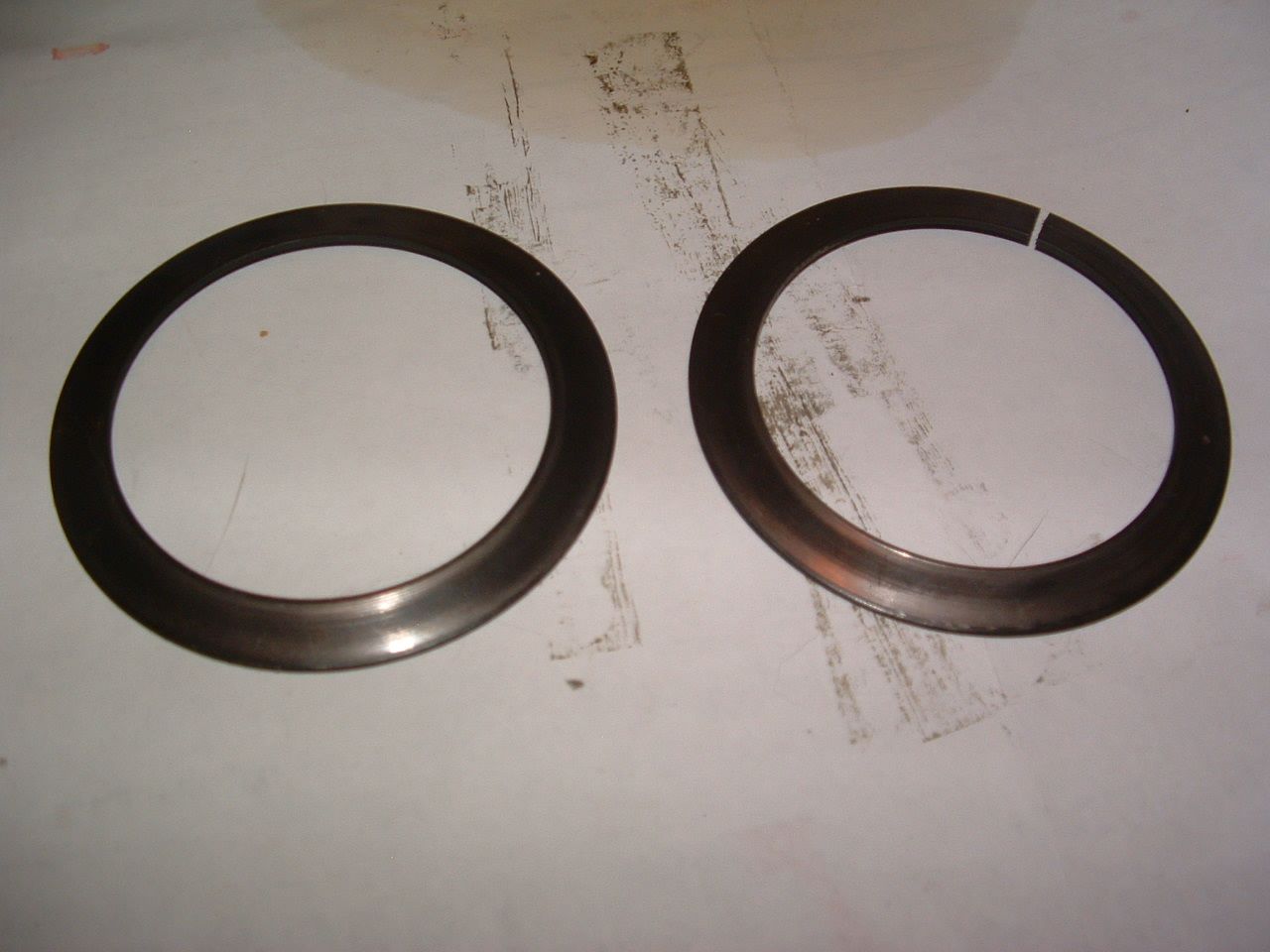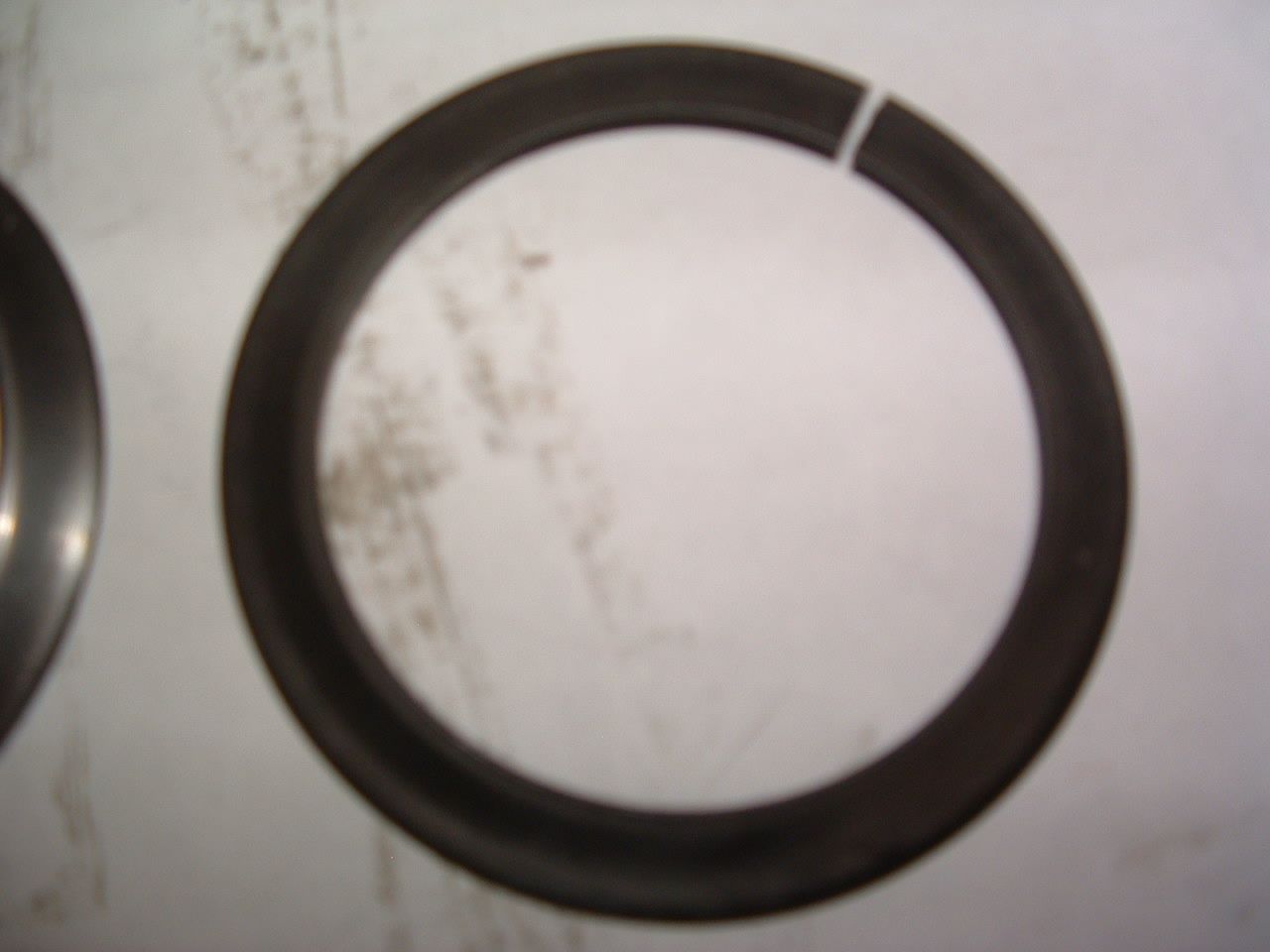Rubbing in clutch pedal when in 1st???
#1
Instructor


Thread Starter
Member Since: Apr 2012
Location: Arvada Colorado
Posts: 111
Likes: 0
Received 0 Likes
on
0 Posts
Hey guys I have a weird problem I haven't been able to solve.
When I start up my car for the first time in the morning (especially on colder days here in Colorado) once I start moving forward and turn the wheel at all I feel what I can only describe as a "rubbing" in the clutch pedal. I guess its a little vibration and noise really but only while the wheel is turned and only in 1st gear. Once I get out of first or the car warms up it goes away.
A little history, I did replace the stock clutch with a LS6 clutch and did the master, slave, throwout bearing, pilot bearing, flywheel and such at 112000 miles and its just turning 117000 miles. Not sure if that would matter.
Thanks in advance for the help!
When I start up my car for the first time in the morning (especially on colder days here in Colorado) once I start moving forward and turn the wheel at all I feel what I can only describe as a "rubbing" in the clutch pedal. I guess its a little vibration and noise really but only while the wheel is turned and only in 1st gear. Once I get out of first or the car warms up it goes away.
A little history, I did replace the stock clutch with a LS6 clutch and did the master, slave, throwout bearing, pilot bearing, flywheel and such at 112000 miles and its just turning 117000 miles. Not sure if that would matter.
Thanks in advance for the help!
#2
Tech Contributor

Member Since: Dec 1999
Location: Anthony TX
Posts: 32,736
Received 2,180 Likes
on
1,583 Posts
CI 6,7,8,9,11 Vet
St. Jude Donor '08

There really isn't any connection between the CLUTCH and STEERING. I sat here for a while and brain stormed what changes during a TURN that could effect the drive train feel or cause vibrations
One of the rear wheels turns at a slower or higher speed in a turn and your differential has to use the limited slip clutches to allow the rear wheels to spin at different speeds through the turn.
You also put more stress or load on one of the rear wheel bearings.
Put the car out of gear "N" and release the rear E brake. Chock the FRONT WHEELS..
Jack ONE rear wheel off the ground. Attempt to rotate the ONE rear wheel. It should rotate but it should have a heavy resistance and take approx. 40-60 ft/lbs to break free and should turn at that resistance smoothly. Your are testing the friction of the limited slip clutches. Do the same test on the other rear wheel.
Grab the wheel at the top & bottom and at the sides. Push and pull in each quadrant. You should have little or no bearing slop. The more that you have, the worse shape the bearing hub is in and that can cause drive train vibrations and noise. Do the same test on the other rear wheel.
You are checking the rear wheel bearings for wear.
Report results.
Bill
One of the rear wheels turns at a slower or higher speed in a turn and your differential has to use the limited slip clutches to allow the rear wheels to spin at different speeds through the turn.
You also put more stress or load on one of the rear wheel bearings.
Put the car out of gear "N" and release the rear E brake. Chock the FRONT WHEELS..
Jack ONE rear wheel off the ground. Attempt to rotate the ONE rear wheel. It should rotate but it should have a heavy resistance and take approx. 40-60 ft/lbs to break free and should turn at that resistance smoothly. Your are testing the friction of the limited slip clutches. Do the same test on the other rear wheel.
Grab the wheel at the top & bottom and at the sides. Push and pull in each quadrant. You should have little or no bearing slop. The more that you have, the worse shape the bearing hub is in and that can cause drive train vibrations and noise. Do the same test on the other rear wheel.
You are checking the rear wheel bearings for wear.
Report results.
Bill
#3
Instructor


Thread Starter
Member Since: Apr 2012
Location: Arvada Colorado
Posts: 111
Likes: 0
Received 0 Likes
on
0 Posts
There really isn't any connection between the CLUTCH and STEERING. I sat here for a while and brain stormed what changes during a TURN that could effect the drive train feel or cause vibrations
One of the rear wheels turns at a slower or higher speed in a turn and your differential has to use the limited slip clutches to allow the rear wheels to spin at different speeds through the turn.
You also put more stress or load on one of the rear wheel bearings.
Put the car out of gear "N" and release the rear E brake. Chock the FRONT WHEELS..
Jack ONE rear wheel off the ground. Attempt to rotate the ONE rear wheel. It should rotate but it should have a heavy resistance and take approx. 40-60 ft/lbs to break free and should turn at that resistance smoothly. Your are testing the friction of the limited slip clutches. Do the same test on the other rear wheel.
Grab the wheel at the top & bottom and at the sides. Push and pull in each quadrant. You should have little or no bearing slop. The more that you have, the worse shape the bearing hub is in and that can cause drive train vibrations and noise. Do the same test on the other rear wheel.
You are checking the rear wheel bearings for wear.
Report results.
Bill
One of the rear wheels turns at a slower or higher speed in a turn and your differential has to use the limited slip clutches to allow the rear wheels to spin at different speeds through the turn.
You also put more stress or load on one of the rear wheel bearings.
Put the car out of gear "N" and release the rear E brake. Chock the FRONT WHEELS..
Jack ONE rear wheel off the ground. Attempt to rotate the ONE rear wheel. It should rotate but it should have a heavy resistance and take approx. 40-60 ft/lbs to break free and should turn at that resistance smoothly. Your are testing the friction of the limited slip clutches. Do the same test on the other rear wheel.
Grab the wheel at the top & bottom and at the sides. Push and pull in each quadrant. You should have little or no bearing slop. The more that you have, the worse shape the bearing hub is in and that can cause drive train vibrations and noise. Do the same test on the other rear wheel.
You are checking the rear wheel bearings for wear.
Report results.
Bill
#4
Tech Contributor

Member Since: Dec 1999
Location: Anthony TX
Posts: 32,736
Received 2,180 Likes
on
1,583 Posts
CI 6,7,8,9,11 Vet
St. Jude Donor '08

A new healthy limited slip clutch will break away (turn independtly from the other wheel) at 100+ foot/poubds.
Yes, Torque measured at the wheel hub bolt with a torue wrench.
When the differential with normal mileage and normal worn clutches, the torque value NORMALY yeilds at the 40-60 ft/lb range
Weak or worn or damaged clutches usually yeild in the 20-30 ft/lb range.
Some of the causes of a very low yeild limited slip clutch are:
- Highly worn friction disks
- Broken Beleview clutch pack tension springs
OR both issues.
Good on the left,,,,, Bad on the right:


Bill
Yes, Torque measured at the wheel hub bolt with a torue wrench.
When the differential with normal mileage and normal worn clutches, the torque value NORMALY yeilds at the 40-60 ft/lb range
Weak or worn or damaged clutches usually yeild in the 20-30 ft/lb range.
Some of the causes of a very low yeild limited slip clutch are:
- Highly worn friction disks
- Broken Beleview clutch pack tension springs
OR both issues.
Good on the left,,,,, Bad on the right:


Bill
#5
Instructor


Thread Starter
Member Since: Apr 2012
Location: Arvada Colorado
Posts: 111
Likes: 0
Received 0 Likes
on
0 Posts
Bill thanks again for your reply. I have learned a lot from your posts over the past year. I will check this out this weekend when I go to my dads where all my tools are.
I may have given you some poor information though. I investigated my problem some more after work today and realized that the sound if coming from what seems like behind the steering wheel. I still feel the vibration or "rubbing" in the clutch pedal though.
It only happens when I move the wheel left or right WITH the clutch pedal pushed in. If the clutch is out there is no sound or vibration. Also it still only happens when it is cold, after it warms up it is gone. This leads me to think power steering maybe? but it still doesn't explain why I feel it in the clutch pedal when it is pushed in.
I checked power steering fluid and clutch fluid, and the clutch fluid is low. Very little is left in the master cylinder so I will fill that this weekend. Let me know if you have any other thoughts on this information. Thanks in advance!
I may have given you some poor information though. I investigated my problem some more after work today and realized that the sound if coming from what seems like behind the steering wheel. I still feel the vibration or "rubbing" in the clutch pedal though.
It only happens when I move the wheel left or right WITH the clutch pedal pushed in. If the clutch is out there is no sound or vibration. Also it still only happens when it is cold, after it warms up it is gone. This leads me to think power steering maybe? but it still doesn't explain why I feel it in the clutch pedal when it is pushed in.
I checked power steering fluid and clutch fluid, and the clutch fluid is low. Very little is left in the master cylinder so I will fill that this weekend. Let me know if you have any other thoughts on this information. Thanks in advance!

